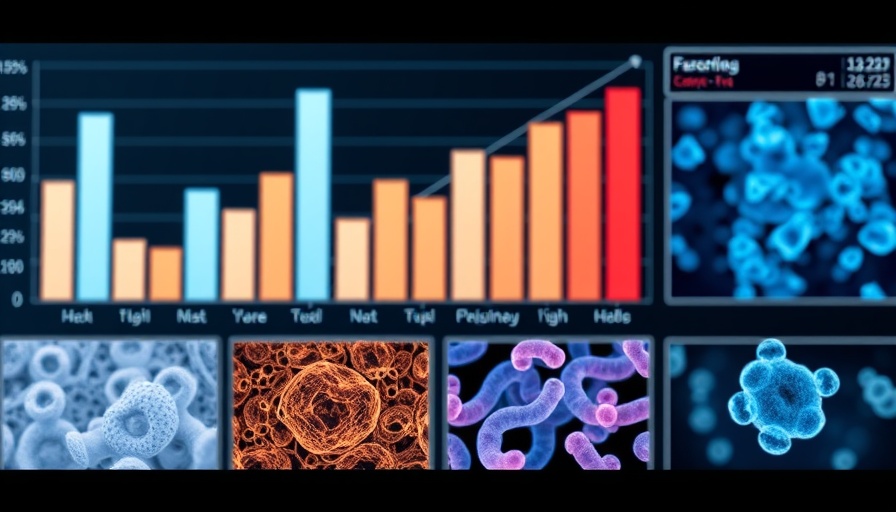
Unpacking Lung Adenocarcinoma: The Role of Rosmarinic Acid
Lung adenocarcinoma, a lethal form of non-small cell lung cancer (NSCLC), currently stands as the leading cause of cancer-related deaths worldwide. What makes this disease particularly insidious is its reliance on a unique group of cells—cancer-associated fibroblasts (CAFs)—that interchange dynamically with tumor cells, often in surprising ways. In a recent study published in Scientific Reports, researchers have shed light on how rosmarinic acid (RA), a compound commonly found in various herbs, can potentially revolutionize treatment approaches by enhancing the efficacy of gefitinib, a standard drug for lung cancer.
What’s particularly fascinating is the biphasic relationship observed between CAFs and lung cancer cells. Initially, these fibroblasts can inhibit tumor growth; however, they later enhance the cancer’s aggressiveness. This duality opens a window into novel therapeutic strategies. Rosmarinic acid seems to play a crucial role in modulating these interactions, leading to better outcomes for patients by reducing tumor growth.
The Science Behind Rosmarinic Acid
Rosmarinic acid isn’t just a trendy supplement featured in wellness articles for its antioxidant properties—its biochemical implications are profound. This compound has exhibited the ability to target specific cancer pathways, reducing the activation markers of fibroblasts while simultaneously affecting the epithelial-mesenchymal transition (EMT) of NSCLC cells. In simpler terms, RA contributes to keeping cancer cells from transitioning to a more aggressive and invasive state, thus having a protective role while enabling gefitinib's anti-tumor effects.
Transforming Cancer Treatment: How Does This Work?
Understanding how RA assists gefitinib warrants investigation into cancer biology. Researchers found that administration of rosmarinic acid in experimental models significantly decreased fibroblast activation markers while promoting healthy cellular communications. Infusing this wonder compound with gefitinib established a potent duo, tackling both the tumor and the underlying supportive structures that often aid in tumor progression. This synergistic approach marks a turning point in managing lung adenocarcinoma.
The Bigger Picture: Integrative Approaches to Health
For health-conscious readers, this story underscores a vital principle: optimal wellness is multi-faceted. The findings on RA and lung cancer suggest that dietary supplements rooted in natural compounds can significantly extend healthspan and optimize cellular health. Engaging with cutting-edge research allows individuals to make informed choices, weaving in effective strategies for longevity. These insights align with broader trends, such as personalized health strategies and cellular health optimization, supporting the idea that prevention and wellness can be approached from various angles.
Nutrition, Supplements, and Their Role in Longevity
What does this mean for everyday life? First and foremost, it highlights the importance of including certain superfoods and supplements in our diets. RA, often found in herbal teas and spices, provides not just flavor but functional health benefits. Integrating such elements into your daily routine, alongside maintaining a balanced diet rich in vitamins and minerals, can foster resilience against diseases while promoting longevity. Think of it as nature’s way of biohacking your body for optimal performance!
Looking Ahead: Future Research Directions
The intriguing correlations uncovered in this study pave the way for further exploration. As scientists continue to dissect the molecular interplay between cancer cells and CAFs, we can anticipate a plethora of new therapies emerging that focus on holistic approaches to cancer treatment. Through advancements in research, the potential for improving patient outcomes in lung adenocarcinoma could materialize through enhanced dietary strategies and innovative pharmacological interventions.
Your Next Steps: Embrace the Power of Nutrition
In light of these revelations, consider indulging in a healthy blend of herbs and supplements that could fortify your cells' defensive mechanisms. Regularly consuming rosmarinic acid through teas, herbs, or capsules may not only enhance your general wellness but could also be a proactive measure in disease prevention. Staying informed about the latest research equips you to make more enriching choices for a healthier lifestyle.
 Add Row
Add Row  Add
Add 




Write A Comment